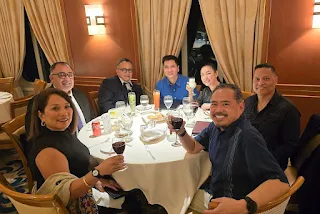Why the US Has Birthright Citizenship: Understanding Our Constitutional Foundation in 2025
🚨 2025 Context: Why This Matters Now
Recent executive orders and Supreme Court cases have thrust birthright citizenship into the national spotlight. President Donald Trump's push to end birthright citizenship gained traction after the Supreme Court limited universal injunctions, possibly enabling his policy in certain areas. Understanding the constitutional foundation has never been more important.
The Constitutional Foundation: The 14th Amendment
— 14th Amendment, Section 1 (1868)
This simple sentence fundamentally transformed American citizenship. But to understand why it exists, we need to look at the historical context that made it necessary.
Historical Timeline: The Path to Birthright Citizenship
Why Birthright Citizenship Was Created
The framers of the 14th Amendment understood that citizenship by birth creates a fundamental equality that can't be easily taken away by changing political winds. They had witnessed how the lack of clear citizenship rules had created an entire class of people without legal protections.
The "Subject to the Jurisdiction Thereof" Clause
This phrase has been the center of modern debates. Historically, it excluded two specific groups:
Importantly, the Supreme Court in Wong Kim Ark (1898) ruled that children born to non-citizen parents who are legally present in the US are "subject to the jurisdiction thereof" and therefore citizens.
Due Process and Equal Protection
The 14th Amendment doesn't just establish birthright citizenship—it also guarantees:
These clauses work together to create a framework where birthright citizenship isn't just about who gets a passport—it's about ensuring a stable, protected population that can't be stripped of rights arbitrarily.
Global Perspective: How Common is Birthright Citizenship?
out of 195 countries worldwide have birthright citizenship
The Americas are unique in this regard. Most countries with birthright citizenship are in North and South America, reflecting our shared history as nations built by immigrants.
Common Myths vs. Facts
❌ Myth
"Birthright citizenship encourages illegal immigration"
✅ Fact
Denying birthright citizenship to children of immigrants would actually increase the number of illegal immigrants in the U.S. because babies would be born without status.
❌ Myth
"The 14th Amendment only applies to children of enslaved people"
✅ Fact
The amendment's language is universal: "All persons born...in the United States." The 1898 Wong Kim Ark case specifically confirmed this applies to all ethnic groups.
Why This Matters for Filipino-Americans
The Filipino-American experience is deeply connected to birthright citizenship. Consider:
The Current Legal Challenge
What's Happening in 2025
Upon taking office in 2025, Trump issued an executive order asserting that the federal government would not recognize jus soli birthright citizenship for the children of non-citizens. The executive order is currently being challenged in court.
Harvard Law School Professor Gerald Neuman says a president has no authority at all to change United States citizenship rules. Legal experts widely agree that changing birthright citizenship would require a constitutional amendment, not an executive order.
Why Birthright Citizenship Protects Democracy
Beyond individual rights, birthright citizenship serves broader democratic principles:
The Bottom Line
Birthright citizenship isn't an accident or an oversight—it's a fundamental principle that has shaped American democracy for over 150 years. It emerged from one of the darkest chapters in American history as a promise that citizenship wouldn't be conditional on political favor or ethnic background.
For Filipino-Americans and all immigrant communities, birthright citizenship represents something profound: the promise that your children will be unquestionably American, with all the rights and responsibilities that entails.
Stay Informed, Stay Engaged
Constitutional rights aren't abstract concepts—they're the foundation of our daily lives. As these debates continue, it's crucial that we understand the history and importance of the principles that protect us all.
What you can do: Learn your constitutional rights, engage in civic participation, and share accurate information with your communities.
Sources: 14th Amendment to the U.S. Constitution, United States v. Wong Kim Ark (1898), recent legal analysis from Harvard Law School, Supreme Court decisions, and constitutional scholarship.
Note: This analysis is for educational purposes. For legal advice, consult with qualified attorneys.
via YouTube https://www.youtube.com/watch?v=OBFX4EuAWHc
#filipinodiaspora #filam #filipino #filipina




















0 Comments
Hi! Thank you for dropping by. Please leave us a comment.